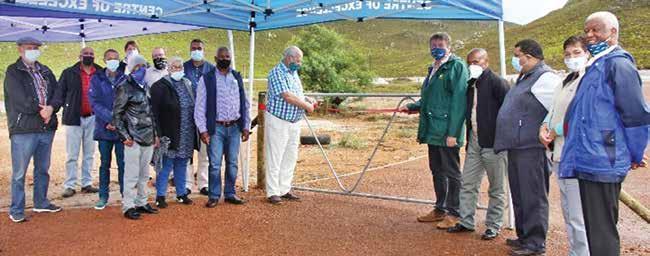
1 minute read
We will fight them on the beaches
We will fight them on the beaches
Writer & Photographer Elaine Davie
Advertisement
There are relatively few people around today who remember the war years; others might even ask what war – World War I, World War II… the Boer War? To them, they are all equally distant, devoid of any real relevance. But for those born in the 1930s or the early ’40s, WWII was a lived experience.
Dates and names of battles may be significant when plotting the ebb and flow of conflict, but how ordinary people on the ground lived their lives and handled hardship day by day is the stuff of social history. Seldom reflected in academic accounts of the period, it is passed on by word of mouth from generation to generation; a reminder of resilience in a time of fear and confusion.
Although South African civilians were fortunate not to have been caught up directly in one of the theatres of war, life for the families of the men who had ‘joined up’ was anything but a bed of roses. On the one hand, they lived in a state of constant anxiety for the safety of their loved ones serving abroad, and on the other, they had to deal with rationing of everything from food to fuel. Many of them were forced to shuttle from pillar to post for somewhere safe and affordable to stay.
One such family, consisting of a mother and two small children, found themselves marooned in Hermanus in the early years of the war. That little girl, Elaine Alletson (now Jack) was about six years old when they arrived in the small fishing village to seek refuge with a friend of her parents, Miss Edith Rubery (known as Auntie Betty). Now 84, Elaine has some very clear memories of what their life was like here.
Click on the newspaper below to read more (see page 5).










